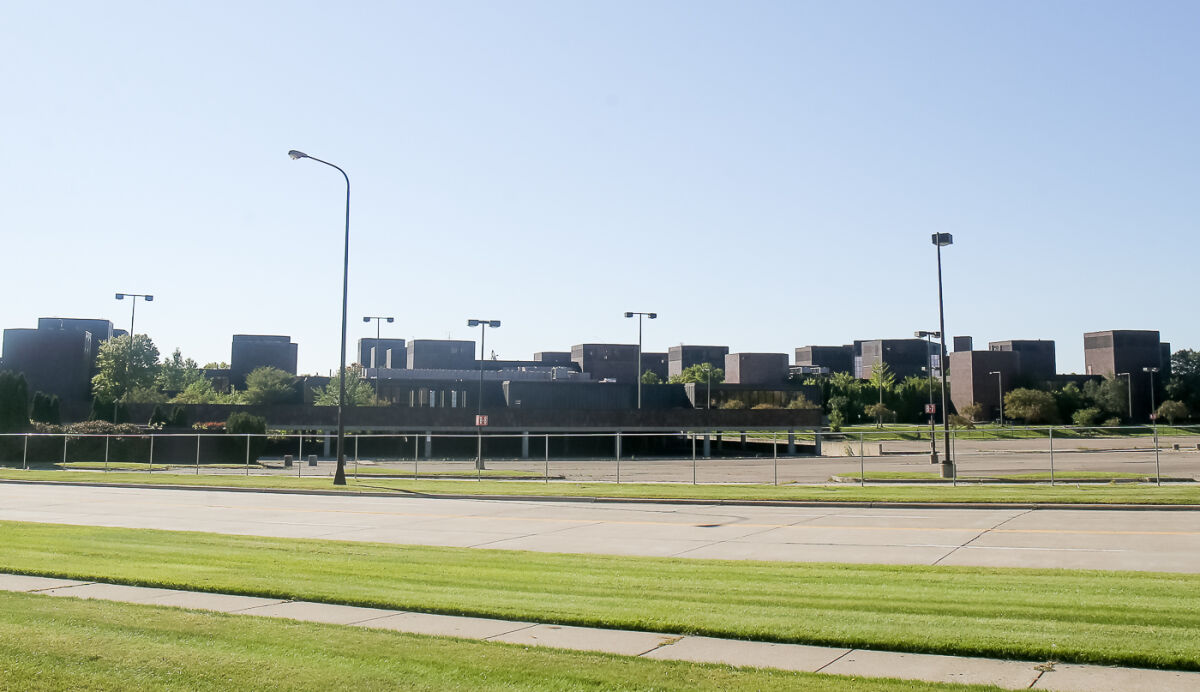On Aug. 31, the city of Troy received a demolition permit for the former Kmart headquarters property that has long sat unused near Big Beaver Road and Coolidge Highway.
The city is currently working with the contractor, Adamo Demolition, on what is needed to receive approval for the demolition permit to begin work on the 40-acre site. No plans have been announced on what will happen to the property following the demolition.
“Having an obsolete building that has been empty for nearly 20 years wasn’t in line with the branding we are trying to put forward, so we are pleased with this new development,” remarked Troy Mayor Ethan Baker.
Kmart, which had its beginnings as the Kresge Co., moved from its former headquarters in Detroit to the Troy campus in 1972. The company merged with Sears and moved its headquarters to Chicago in 2006, and the Troy site has been vacant ever since. The Kmart company is currently preparing to close its final store, having shuttered its last store in Michigan in 2021.
Forbes/Frankel Troy Ventures LLC., the owners of the Kmart property, have not yet submitted any proposed development or schedule for this site at this time. Forbes/Frankel Troy Ventures bought the site in 2009 for $17.5 million.
The Forbes Co. did not respond to requests for comment prior to press time.
Baker said the specifics of why development has taken so long aren’t publicly known, but he believes the property owners wanted to ensure they were making the best decision regarding their real estate.
“It’s private property and a private development. We couldn’t and wouldn’t tell them what to do with their own property,” said Baker. “I know the ownership very well. They didn’t want to move forward until it was the right time to do it. They are now preparing the site for future development. I would speculate that they determined that the best way to do that is to bring down the existing structure.”
The lack of action on the facility has been a longstanding issue in the Troy community, particularly since it sits across from Somerset Collection. The fact that such “prime real estate,” as city officials have called it in the past, has gone unutilized has stood in the way of local plans to position the Big Beaver corridor as “Michigan’s downtown.”
“I think this is something everyone in this city is excited about, and we are looking forward to seeing what happens at this very important site in our city,” said Baker. “Not knowing what future development will be, I can't make any specific comment about whatever will go there, but I’m sure it will complement Somerset well and fit with the goals we have had for the Big Beaver corridor. I have a lot of faith in the people at Forbes/Frankel, that they will develop it into something that will benefit the community.”
Upon city approval, the contractor plans to begin demolition this month, starting on the parking structure, then moving on to the main building. Fencing off of the property had already begun when the announcement was made Aug. 31. Once demolition activity is in full force, deconstruction of the entire property is projected to last between nine and 12 months.
“Demolition of this tired asset is the first step towards redevelopment of this prominent location,” Brent Savidant, Troy’s community development director, said in a press release. “It is important to stress there will be numerous opportunities for public input once a development application is submitted for this property. The process starts with demolition.”
The application still must undergo an evaluation and inspection by the city of Troy’s building, engineering, and planning departments to verify proper standards and specifications will be met, and to ensure the contractor will implement appropriate safeguards for the abutting neighborhoods and commercial properties.
Given the proximity and size of this site, demolition plans include procedures to monitor dust and emissions control, measures for soil erosion and sedimentation, noise control, and proper removal of electrical and hazardous materials such as light poles, bulbs and asbestos. Building debris and concrete will be hauled away to be crushed and recycled at an offsite facility.
“It will be a long process,” said Baker. “Now we are dealing strictly with the demolition, which has to only happen during certain hours. We are working with the owners to make sure it is all being done by the book and provide the least amount of disruption in the area.”
 Publication select ▼
Publication select ▼


























